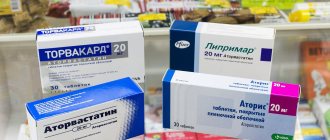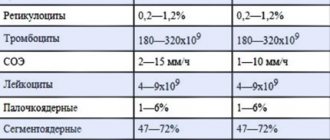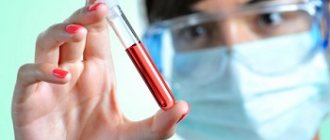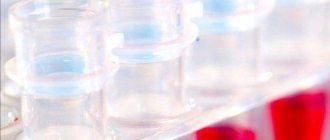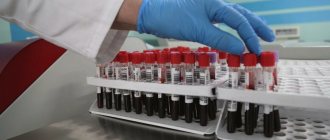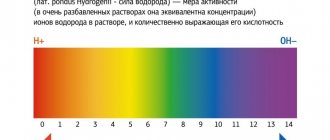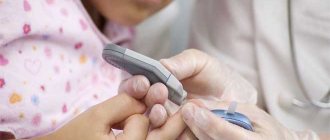Blood thinners reduce blood clotting and thus prevent the formation of blood clots. After all, too thick blood can lead to occlusion (blockage) of blood vessels and, as a result, to embolism, heart attack and stroke. There are many blood thinner medications available. They should not be underestimated, because they have side effects: dangerous bleeding can occur, bones suffer, and dementia becomes more likely. In our article, we present the best natural (natural) blood thinners without side effects.
Who is suitable for natural blood thinners?
Many people around the world suffer from cardiovascular diseases. To prevent premature death from heart attack, stroke, and embolism, millions of people regularly use blood thinners (anticoagulants).
But there are also many foods, herbs, spices and supplements that act as natural blood thinners.
If you need to take blood thinning medications, do not stop taking them immediately and use natural remedies. Because natural blood thinners are not as easy to dose. No one knows how many of them are needed to achieve a particular effect.
Of course, you should discuss the use of natural anticoagulants with your doctor. You may be able to reduce your blood thinner dose gradually.
Natural blood thinners are suitable for people who want to improve the quality of their blood and prevent the future need for pharmaceutical anticoagulants.
Blood thinning products during pregnancy and vein diseases
Changes in hormonal levels during pregnancy very often affect the composition and concentration of the blood, and prescribing anticoagulants is quite dangerous. To reduce clotting, nutritional correction is usually used. Pregnant women are advised to eat more of the healthy foods, with the exception of spices and spices (they can cause placental abruption). There are also restrictions regarding the drinking regime: an increase in the volume of fluid consumed often causes edema.
For thrombophlebitis and varicose veins, hot seasonings . Existing venous transformations progress significantly with regular consumption of pepper and other hot spices.
Diet correction is carried out only with the permission of the attending physician. In addition, combining a diet to reduce blood clotting with taking anticoagulants can lead to serious complications. Information about which food products thin the blood and a complete list of the most effective ones, if used correctly, will help prevent many dangerous diseases.
Blood thinners: coumarins, heparins and acetylsalicylic acid
The term "blood thinner" is a little misleading because it doesn't actually thin the blood. The drugs only prevent it from clotting. Since the term "blood thinner" is widely used in the vernacular and is easily understood by everyone, we use it in this article even if it is not professionally correct.
Because blood clotting requires different processes, blood thinners can reduce clotting by using completely different mechanisms to make the blood less thick.
Coumarins
In Europe, most people take coumarins, also called vitamin K antagonists, because they block its action. Vitamin K is necessary for the body to form clotting factors. If this vitamin is blocked, clotting factors cannot be formed and the blood becomes thinner, meaning it no longer clots as easily.
Coagulation factors (blood clotting factors) are special endogenous proteins that can change their state from liquid to solid under certain conditions (for example, in the case of injury) and thereby lead to stagnation of blood in some places and the formation of blood clots.
The group of vitamin K antagonists includes phenprocoumon (commercially known as Marcumar) and warfarin.
Heparins
Other blood thinners are heparins. If you were given injections to prevent thrombosis after surgery, it was most likely heparin. Heparins work differently than vitamin K antagonists. They speed up the action of the body's own anticoagulants (antithrombin).
Acetylsalicylic acid
You can also take acetylsalicylic acid (such as aspirin) to thin your blood. This group of blood thinners suppresses the function of platelets so that they can no longer form clots as well.
Classification of drugs
A blood thinner may have different properties, depending on the group to which it belongs. The classification approved by experts divides medications into several types.
| Variety | Peculiarities |
| Anticoagulants | Drugs from this group affect the formation of fibrin filaments, which are necessary for the formation of a blood clot in the area of damage to the vascular wall. The drugs inhibit this process, which helps prevent pathological blood thickening and the formation of clots, which can subsequently provoke thrombosis. The great advantage of such medications is the absence of aspirin, which negatively affects the gastric mucosa, causing various complications with long-term use |
| Antiplatelet agents | This group of medications also prevents the formation of blood clots and their attachment to the wall of blood vessels. But the drugs do not affect the process of formation of fibrin threads, but prevent platelets from sticking together. This effect is achieved due to the presence of acetylsalicylic acid in the composition. The disadvantage of medications is the inability to use them for a long time without negative consequences from the digestive tract |
The effect of anticoagulants - drugs for thinning the blood.
Doctors also divide anticoagulants into direct-acting drugs and indirect-acting drugs. The former are usually made on the basis of Heparin or its derivatives; they help inhibit the production of thrombin and fibrin, which prevents the formation of blood clots.
Additionally, direct-acting medications reduce the permeability of the vascular wall and relieve vascular spasm, which has a beneficial effect on the functioning of the heart.
Indirect anticoagulants have an indirect effect on the blood clotting process, helping to prevent cell adhesion and the production of clotting factors. They can be made on the basis of phenindione, as well as coumarin. The latter are herbal medicines, but have a fairly pronounced therapeutic effect.
Separately, experts highlight new generation drugs. They are considered relatively safe, perform their task well and can be used for a long time not only for treatment, but also for the prevention of certain diseases.
In addition, there are combination products that contain, for example, heparin and an additional component used in the production of anticoagulants of another group.
Anticoagulants: side effects
Blood thinners are known for their side effects. The main problem is the complex dosage, which must be determined individually for each patient. Therefore, it always takes some time to “settle” the correct dose. And even after this, the situation can constantly change.
For this reason, many patients using coumarin anticoagulants should visit their doctor at least once a month for check-ups. Another group of patients can use a measuring device to monitor blood clotting (INR value) on their own at home and adjust the medication dose accordingly.
The INR (International Normalized Ratio for clotting time) value is around 1 or slightly lower in healthy people.
If the value increases without the use of blood thinners, a health problem such as vitamin K deficiency occurs. Vitamin K regulates the blood's ability to clot. If it is absent, coagulation disorders are observed.
When the blood needs to be diluted with medication (to prevent thrombosis and embolism), the person takes so much blood thinner that the INR value increases to 2-3. In some cases with a particularly high risk of blood clots, the value even increases from 3.5 to 4.5.
The value achieved with medication is very different from the value of healthy blood. The blood is “thinned” much more than in the case of healthy blood. What are the consequences?
Internal bleeding
Internal bleeding may occur as a result of taking blood thinners. If it is minor, the bleeding may simply not be noticed. But there is a constant loss of blood, which the body must compensate for.
If the bleeding is more severe, you can recognize it by the fact that blood suddenly appears in the urine or stool. Bleeding gums or nosebleeds and bruising of the skin may occur even if you only hit yourself lightly.
It is especially dangerous if bleeding occurs in the brain. In the long term, this can lead to dementia progressing more quickly.
If there is existing kidney damage, the medicine cannot be cleared quickly from the body, so internal bleeding can be fatal.
Sick bones
If you need to take blood thinners for a long time (more than 1 year), it can negatively affect bone metabolism, reduce bone density and contribute to osteoporosis.
This is not particularly surprising since vitamin K antagonists reduce the effects of this vitamin. Vitamin K is not only necessary for the formation of blood clotting factors, but is also important for healthy bones.
Even the newer blood thinners damage bones, albeit in a different way because they inhibit the growth of osteoblasts (bone-forming cells), but the result is more or less the same as vitamin K antagonists.
Rating of the best antiplatelet agents
Dipyridamole
An excellent drug that copes with blood thinning by 100%. Dispensed without a direct prescription from a doctor. In addition, the active component promotes favorable vasodilation. Of course, the effectiveness of the product is slightly less than that of aspirin, but the safety is many times higher. Since the tablets can be used not only by people over 40, but by pregnant or lactating women.
The recommended daily dose is 75 mg, 4 times a day. If necessary, the daily dose is increased by the attending physician to 450 mg (112 mg each). The product is sold in the form of tablets that are easy to swallow and do not get stuck in the throat.
The average cost is 240 rubles.
Dipyridamole
Advantages:
- Efficiency;
- Convenient to use;
- Help quickly;
- Suitable for preventive purposes.
Flaws:
- There are minor side effects.
Ticlopidine
The medication helps to effectively suppress the adhesion of blood plates, reduces the viscous state of the blood, and also increases the duration of bleeding. The product is expensive as it is produced by a foreign company. Recommended by doctors as the best remedy. The course of treatment is 250 mg 2 times daily. You should not expect any effect in the first days, since complete liquefaction is achieved only after 4 days. This is the peculiarity of the product without aspirin.
There are side effects, but if general recommendations are followed, they rarely occur. Common reactions include low white blood cells, severe abdominal pain, and diarrhea.
Sold in pharmacies at a price of 2,980 rubles per pack.
Ticlopidine
Advantages:
- Good efficiency;
- Compound;
- Side effects rarely occur.
Flaws:
- You need to wait 4 days for improvement;
- Price.
Clopidogrel
The principle of operation of this option is similar to the previous model, but its effectiveness is many times higher. In addition, the product is much safer. The recommended daily dose is 75 mg per 24 hours. It doesn’t matter whether you take it before or after meals, the main thing is not to skip it.
Most often, the medication is prescribed for developed coronary syndrome. This is a dangerous pathology that must be treated immediately. The product is also suitable as a preventive measure. If a person is not sensitive to aspirin, then it is possible to take it together with this component.
The average cost is 120 rubles.
Clopidogrel
Advantages:
- Prevents the formation of blood clots;
- Price;
- Efficiency;
- Easy to carry;
- Quality.
Flaws:
- Not detected.
Ticagrelor
A modern and effective remedy that will cope with blood thinning in a short time. Available only in the form of tablets of 60 or 90 mg. The recommended daily dose is 2 doses per day. There are no special side effects, only two problems have been detected over the entire period - shortness of breath and heavy bleeding
Sold at a price: from 2,750 rubles.
Ticagrelor
Advantages:
- Helps quickly;
- Quality;
- Convenient to drink;
- Reduces the risk of recurrent heart attack.
Flaws:
- High price.
Blood thinners: incompatibility with other drugs
It is important to pay close attention to which medications can be taken with blood thinners and which cannot.
Blood thinners are commonly prescribed to older adults, who are often taking many other medications at the same time, such as blood pressure pills, blood sugar pills, statins, nonsteroidal anti-inflammatory drugs, and more.
The latter, in particular, significantly enhance the effect of blood thinners, since they often themselves have blood thinning properties.
Some antidepressants, antibiotics, thyroid hormones, and painkillers also have a strong blood thinning effect.
However, cortisone and metformin (lowering blood sugar) weaken the effect of coumarins.
Contraindications
Absolute contraindications include:
- Hypersensitivity to other salicylates.
- Tendency to various bleedings.
- Age up to 12 years.
Relative contraindications:
- bronchial asthma;
- chronic diseases of the stomach and small intestine in the acute stage (gastric ulcer, erosive gastritis, duodenal ulcer);
- hemophilia;
- aortic aneurysm;
- preparation for surgery;
- liver failure;
- renal failure;
- pregnancy, especially in the 1st and 3rd trimesters;
- lactation period, as the drug passes into breast milk. If a nursing mother is still forced to take Aspirin for medical reasons, then she will have to give up breastfeeding her baby.
Sometimes doctors prescribe Aspirin cardio to women in the second trimester of pregnancy to prevent heart disease and blood clots. In this situation, the specialist must weigh the benefits of the drug for the expectant mother and the harm from it to the child, since this drug has a teratogenic effect on the fetus, that is, it can cause deformities.
The medicine is prescribed with caution in the following cases:
- simultaneous use of anticoagulants (drugs against increased clotting);
- gout (accumulation of uric acid in the body), since Aspirin helps to delay the excretion of this acid and can provoke an attack of the disease;
- stomach diseases in remission;
- anemia;
- hypovitaminosis K;
- thyrotoxicosis (thyroid disease);
- thrombocytopenia (reduced number of platelets in the blood).
Anticoagulants and medicinal plants: not always a good combination
Medicinal herbs are also not recommended when taking blood thinners. For example, St. John's wort (Hypericum L.), a popular herbal antidepressant, does not work well with blood thinners and reduces their effect.
Ginseng, ginkgo biloba, angelica, ginger, frankincense, wild rosemary and many others also act as blood thinners.
The reason for this effect of medicinal plants is not always known, as, for example, in the case of goji berries.
Goji berries are a natural blood thinner
Used as a medicinal plant or medicinal fruit in Asia, the berry is said to be capable of enhancing the effects of blood thinners to such an extent that in some cases a significant increase in INR value was observed after the respective patients drank goji berry tea or juice.
It is not yet known how the berry does this, but it is suspected that it has a strong blood-thinning effect. Therefore, there is a strong warning against taking goji berry medications if you are taking blood thinners.
Unfortunately, it has not been tested whether goji berry can provide enough blood thinning for some patients to be able to stop taking anticoagulants completely.
Goji berry may be a natural blood thinner. But there are many other foods, herbs and spices that thin the blood.
Of course, they will never reduce blood clotting the way pharmaceutical blood thinners do, but that's a good thing. Because nature always seeks to regulate and heal. It will never thin the blood so much that internal bleeding occurs.
If you include natural blood thinners in your diet, this measure, together with a healthy lifestyle, will also help prevent the occurrence of cardiovascular diseases.
When are medications without aspirin required?
In some diseases and conditions, the blood becomes more viscous and viscous than physiological norms require. This can be dangerous to human health and life. If the therapist knows the reason why changes in blood tests are observed, then together with the patient they will more easily solve the problem. Modern therapists prefer to prescribe drugs without aspirin to avoid the burning effect of aspirin on the internal cavities of the digestive tract.
Reasons for thickening:
- increased number of red blood cells;
- increased hemoglobin levels;
- increase in hematocrit, which indicates the percentage of red blood cells and blood plasma.
These are the most important indicators indicating blood thickening. Their standard indicators depend on age; as such, there are no uniform standards in laboratory results; there are lower and upper limits of indicators, which therapists are guided by when adjusting the dosages prescribed to each specific patient.
Factors that can be used to regulate blood viscosity while taking medications:
- drink a normal amount of fluid;
- monitor the normal functioning of the intestines;
- Avoid dehydration for people with diabetes;
- during intense physical activity, increase the amount of fluid you drink;
- Healthy food.
Then, together with a therapist, it is easy to determine what needs to be done and select medications that thin the blood during pregnancy and beyond, regulate blood viscosity and maintain normal coagulation rates.
Causes of diseased blood vessels and “too thick blood”
The unhealthy tendency for blood to clot or thrombose may actually be congenital, but this is rarely the case. Rather, the reasons lie in a person’s lifestyle and diet.
Thrombosis usually occurs in the veins, that is, where blood flows more slowly. Blood flow can be accelerated if a person moves regularly. Thus, exercise is one of the best measures to maintain blood flow. A sedentary lifestyle combined with excess weight is poison for the blood flow and blood vessels.
Another cause of blood clots is damage to the walls of blood vessels. Deposits (arteriosclerosis) and blood clots tend to form at these points. If a blood clot breaks loose and becomes lodged in a subsequent narrower blood vessel, thrombosis or embolism occurs.
Damage to the walls of blood vessels and an increased tendency of the blood to clot and deposits occur, in particular, for the following reasons:
- Lack of exercise (also due to bedriddenness)
- Smoking (constricts blood vessels, causing damage to blood vessel walls)
- Unhealthy foods lacking antioxidants and vital nutrients
- Lipid metabolism disorder
- High homocysteine levels
- Fluctuations in blood sugar (diabetes)
- High blood pressure
- Overweight
- Synthetic hormones (birth control pills!)
- Chronic inflammatory diseases, such as rheumatic diseases, tumor diseases, autoimmune diseases, etc.
- Drugs
Although unhealthy food is already mentioned in the third point, most of the other factors listed are often the result of poor diet and lifestyle.
For example, elevated homocysteine levels occur mainly due to a lack of vitamins and antioxidants. Fat metabolism, blood sugar and blood pressure, not to mention weight, can also be very well regulated through nutrition.
The corresponding preventative measures may not seem impressive, but they have a phenomenal effect:
- Exercise, sports
- Quitting smoking and alcohol
- Healthy eating
- Missing vital substances through nutritional supplements
- Fighting excess weight
- Consuming natural blood thinners in the form of foods, herbs and spices
"Clopidogrel"
The medication's spectrum of action is similar to Ticlodipine, but it is more effective and safer. It should be taken 75 milligrams once a day, regardless of meals. The cost of blood thinning tablets without Aspirin varies from 300 to 900 rubles.
Clopidogrel is prescribed for the following conditions:
- For acute coronary syndrome, 300 milligrams are prescribed once.
- For prophylactic purposes to prevent stent thrombosis after stenting. If there are no restrictions, it is used in combination with acetylsalicylic acid.
- Coronary heart disease, which occurs with the appearance of ischemic necrosis of the myocardium.
- Ischemic stroke (impaired microcirculation of the brain with damage to brain tissue, disruption of its functions due to difficulty or cessation of blood flow to one or another part).
- Occlusion of peripheral arteries (vascular insufficiency that develops when there is a blockage or blockage of blood vessels, as a result of which the transportation of blood to a particular organ is disrupted, which leads to problems in its functioning).
Natural blood thinners
Unfortunately, natural blood thinners are not very popular in science and research. On the contrary, it is even preferable to warn patients taking anticoagulants about the effects of natural blood thinners and discourage their use.
It's a pity. Because you can naturally thin your blood and significantly improve your well-being without constantly resorting to medications with dangerous side effects.
However, since until now there has been virtually no research into the mechanism of action and proper dosage of blood thinning natural products, their targeted consumption is officially reserved for prevention only.
For the same reason, we cannot provide specific dosage information. For dietary supplements and herbal remedies, it is best to discuss this with your doctor.
According to various studies in recent years, blood-thinning and blood vessel-protecting foods and dietary supplements include:
- Nattokinase
- Bromelain
- Turmeric
- Ginger
- Cinnamon
- Capsaicin
- Garlic
- Omega-3 fatty acids
- Nettle and basil
- Dark chocolate
- Oligomeric proanthocyanidins
The following foods (and many others) may also act as natural blood thinners.
- Bulb onions
- Red wine extract
- Ginseng
- Tomatoes
- Berries
Nattokinase
In 2006, Californian scientists were able to demonstrate in the laboratory a significant reduction in blood clotting and viscosity using the enzyme nattokinase. Nattokinase is derived from fermented soybeans and is considered a highly fibrinolytic (anticoagulant) agent.
For this reason, some manufacturers were enthusiastic about the fact that nattokinase is a natural blood thinner and can quickly dissolve blood clots, which, of course, was quickly averted. Because dietary supplements cannot be advertised with such specific "healing claims" - regardless of whether the claim is correct or not.
However, in another study, this time on humans, the blood thinning effect of soy enzyme was confirmed. In a 2020 Japanese study of 12 healthy young men, improved fibrinolysis (the process of dissolving blood clots and blood clots) was noted after a single dose of nattokinase. This means that nattokinase increased the body's ability to dissolve blood clots on its own.
However, nattokinase is an isolated enzyme, that is, it is not itself a natural food and, therefore, if the dosage is incorrect, it can also (like medicinal blood thinners) lead to excessive blood thinning.
If you want to consume nattokinase in its natural form through food, you might consider eating natto, a traditional Japanese dish made from fermented soybeans that can be purchased in some Asian stores.
In addition, natto is also relatively rich in vitamin K, which is (in high doses) an antagonist to blood thinners. Therefore, it is better to use the product “nattokinase” purified from vitamin K.
Bromelain
Scientists at the British University of West London conducted six studies on bromelain and blood thinning in 2011. Bromelain, a known enzyme from pineapple, has been shown to be suitable for the treatment of acute thrombophlebitis (superficial vein thrombosis) as it reduces platelet clumping (blood clotting), has a protective effect on the heart and prevents the formation of blood clots.
Turmeric
Turmeric is a spice that has now been extensively researched and has many positive health benefits, whether it be detoxification, liver and teeth protection, lowering blood sugar or cancer prevention.
Research also shows that turmeric protects against arteriosclerosis and platelet clumping by preventing blood clots.
The blood thinning effects of turmeric seem to be so impressive that it is even recommended to stop taking turmeric supplements two weeks before your scheduled surgery.
Turmeric may also increase the blood thinning effects of warfarin, aspirin, etc., so turmeric is not recommended as a dietary supplement if you are taking pharmaceutical anticoagulants.
A 2012 Korean study examined the anticoagulant properties of curcumin, an isolated active compound from turmeric. Surprisingly, the blood-thinning effects of curcumin were so good that it was said that daily consumption of the spice turmeric can maintain healthy blood properties for a long time.
Ginger
Ginger is also considered a natural blood thinner. In a study conducted in Australia in 2003, the activity of substances isolated from ginger root was tested for blood clotting. Ginger thinned the blood better than aspirin.
However, since you are not eating the isolated substances of ginger root, and most often just a piece of it, you are not consuming so many blood thinning substances with it that they have a strong anticoagulant effect.
But regular consumption of ginger root in any case promotes healthy blood. After all, it has strong antioxidant properties, which make ginger an excellent protector of the cardiovascular system.
Cinnamon
Cinnamon has anticoagulant effects, but mainly in the form of extracts, such as cinnamon essential oil or cinnamon distillate. Aqueous extract of cinnamon (cinnamon tea) does not have a blood thinning effect. This also suggests that cinnamon-specific substances must be taken in high doses to achieve therapeutic effects.
Cayenne pepper (capsaicin)
A 2014 Australian study found that capsaicin, a hot ingredient from chili peppers (cayenne pepper), may act as a natural blood thinner and slow the progression of blood clots. Chili peppers have blood thinning properties, but only in large doses or in the form of isolated capsaicin as a dietary supplement.
Garlic
Garlic has many beneficial properties related to vascular and blood health. It lowers cholesterol and blood pressure, dissolves blood clots. That is, a small onion influences all those factors that could otherwise lead to cardiovascular disease. Unfortunately, there is no consensus on the appropriate dosage.
There are also no current studies that specifically address garlic as a natural blood thinner. Garlic is rather more recommended as part of a healthy diet to prevent arteriosclerosis.
Omega-3 fatty acids
Omega-3 fatty acids are known for their blood thinning effects. Taking these natural blood thinners along with anticoagulant medications increases their effectiveness.
When you take omega-3s preventatively (as a dietary supplement) or cook with the appropriate oils, you are promoting healthy blood flow.
Interestingly, alpha-linolenic acid seems to be particularly effective here. It is a much better blood thinner than the long-chain omega-3 fatty acids DHA and EPA.
An excellent blood thinner is adding flaxseed and hemp oil to fresh food (these oils should not be heated).
Nettle and basil
Interestingly, even foods rich in vitamin K, such as nettle and basil, can thin the blood. Research has shown this. However, in the experiments they used not the green leaves of these plants, but an aqueous extract, that is, tea from nettle or basil.
However, vitamin K should not be considered the enemy. After all, foods rich in vitamin K are some of the healthiest, such as broccoli, cauliflower, herbs and all green leafy vegetables.
It is now known that eating these foods is not a problem while taking blood thinners. It is only necessary to adjust the dosage of anticoagulants accordingly, and it is best to consume a similar amount of vitamin K daily to avoid large fluctuations.
Foods rich in vitamin K have more advantages than disadvantages for blood thinner patients. After all, they naturally supply the body not only with vitamin K, but also with calcium, magnesium, chlorophyll and valuable secondary plant substances (phytonutrients).
Cocoa and dark chocolate
The active substances in natural cocoa are so strong that dark chocolate (with a high cocoa content and little or no sugar) becomes a real medicine!
Cocoa contains many highly concentrated flavonoids and oligomeric proanthocyanidins. In 2003, the American Journal of Clinical Nutrition reported on a study in which participants were given either a cocoa supplement or a placebo for 28 days. At the end of the trial, participants who took cocoa had significantly reduced blood clotting, showing that cocoa is very suitable as a natural blood thinner.
Oligomeric proanthocyanidins
Of course, oligomeric proanthocyanidins are not only found in cocoa. Appropriate amounts of proanthocyanidins are also present in grape seed extract and red wine.
Proanthocyanidins have excellent properties for the cardiovascular system.
As a powerful antioxidant, they protect the walls of blood vessels from oxidative stress and the effects of free radicals. Blood vessels remain elastic and stable. No damage or deposits are formed.
Oligomeric proanthocyanidins have been proven to relieve pain and swelling, so are a good natural aid for the entire vascular system and therefore improve blood flow.
Combining natural blood thinners
This list of natural blood thinners shows how well a proper diet with appropriate nutritional supplements can protect against excessive blood clotting, blood clots, and slow blood flow.
The foods mentioned above become natural blood thinners thanks to flavonoids (certain phytonutrients). This is why a diet consisting in particular of plant foods is an excellent disease preventative when it comes to cardiovascular problems.
What you can't eat
Having included healthy and most effective foods for reducing blood viscosity in your daily menu, you must at the same time give up harmful ones. These include, first of all, fatty foods.
- Any animal fat , as well as cream and butter from them, increases cholesterol levels and blood viscosity. Soups with rich broth and pork for main course are prohibited.
- Butter baked goods and a variety of confectionery products are also contraindicated. An excess of fast carbohydrates increases blood concentration and also contributes to the development of diabetes and obesity. Therefore, you will have to replace your favorite buns, pastries, cakes and white bread with fruits from the list above, and add honey to your tea instead of sugar.
- You will also have to give up tempting sausages, smoked meats, pickled and canned products .
- It is not recommended to eat lentils, potatoes, walnuts, bananas and mangoes . They contain a lot of vitamin K, which increases blood clotting.
- Alcohol should be completely eliminated from the diet. There is an opinion that a glass of dry red wine a day will only bring benefits, but most doctors recommend refraining from drinking any alcoholic beverages. In addition, high-quality wine is quite an expensive pleasure, and cheap wines are contraindicated even for completely healthy people.
Therefore, if you
- eat a lot of vegetables and fruits rich in flavonoids and fiber,
- use high quality oils with omega-3 fatty acids,
- Snack on dark chocolate from time to time
- generously season your dishes with turmeric, ginger and cinnamon,
- eat garlic and onions,
- sometimes you drink tea with nettles,
- if necessary, take certain nutritional supplements such as omega-3, curcumin and capsaicin,
- stick to specific meal times and
- do enough exercise in the fresh air,
then not only your blood will be in excellent condition. Your blood vessels are also protected! No more deposits should form and your cardiovascular system will cope well with old age.
Based on materials from: Pearson DA, Bone health and osteoporosis: the role of vitamin K and potential antagonism by anticoagulants., Nutrition in Clinical Practice, Oktober 2007; Gioia G et al., The role for dietary omega-3 fatty acids supplementation in older adults. Nutrients, Oktober 2014; Natürliche Blutverdünner ohne Nebenwirkungen, Zentrum der Gesundheit, 03.12.2019; Jolayemi Adebayo Taiwo Ezekiel, Ojewole John Akanni Oluwole, Effects of capsaicin on coagulation: Will this be the new blood thinner, Science Publishing Group, 30. September 2014.
Share this article
How to thin the blood after 50 years using folk remedies?
You can thin the blood not only with pills, but also with traditional methods. It is worth noting that proper nutrition is also important. There is a whole list of products that can thicken or, conversely, thin the blood.
How to thin the blood after 50 years with folk remedies:
- Drink with ginger . You need to mix the cinnamon on the tip of a knife with a teaspoon of green tea and add fresh ginger root. A small piece is enough. The volume of water should be 500 ml. It is necessary to wash the ginger, peel it and grate it. After this, brew the tea with boiling water, let it sit for a while, add cinnamon and then add grated ginger root. These 500 ml of liquid should be consumed throughout the day.
- White willow tea . It is necessary to use dried white willow bark. To prepare the substances, you need to pour a tablespoon of raw material into 170 ml of boiling water and boil for 2 minutes. After this, a lemon ring is added. Please note that lemon peel must also be used. It is advisable to grind it using a blender or grater. Take this decoction 50 ml three times a day, half an hour before eating. The total course of treatment is 10 days. Do not forget that the decoction must be stored in the refrigerator.
- You can thin the blood with the help of medicinal herbs, or rather mixtures . To prepare a healing solution, use sweet clover, arnica, and wormwood. It is necessary to mix the ingredients in equal quantities and take about a tablespoon of the mixture. It is placed in a thermos and filled with 400 ml of boiling water. After this, you need to close the thermos and leave for 8 hours. That is, it is advisable to prepare the decoction in the evening so that you can start treatment in the morning. Take the decoction 30 minutes before meals. During the day, it is advisable to drink 400 ml of decoction.
- To thin the blood, you can use chestnut tincture . To do this, you need to separate the chestnut peel and pour 100 ml of vodka into 50 g. After this, you need to put the container in a dark place and let it stand for 14 days. It is advisable to shake the container every day so that the substances from the peel pass into alcohol. It is necessary to take three times a day, 30 drops. The course of treatment is 21 days.
- In addition, instill the habit of drinking rosehip infusion . To prepare it, you need to pour a teaspoon of crushed rose hips into a glass of boiling water and boil for 2 minutes. After this, the product is filtered and taken instead of tea. You need to drink up to 1 liter of this solution per day.
- Please note that it is necessary to maintain a drinking regime . For these purposes, you need to drink at least 1 liter of clean water per day. This does not mean soups, decoctions and coffee, but clean water. That is why nutritionists recommend taking a glass or two of clean boiled water early in the morning on an empty stomach. It empties the stomach and helps thin the blood. In the summer, do not give up fresh berries. The most useful will be cherries and cherries. However, you shouldn’t make jam from them; it’s best to freeze them for the winter.
- Nettle will help thin the blood . To prepare the product, you need to brew one tablespoon of 300 ml of boiling water. The product is boiled for 2 minutes and filtered. Take 120 ml three times a day. Please note that the ideal option would be to use salads with fresh nettles. You can also drink freshly prepared juice from the leaves. Take it in an amount of 20 ml three times a day, preferably before meals.
- You can thin the blood with Kalanchoe and aloe . Juices are used for these purposes. It is necessary to cut the aloe leaves and place them in the refrigerator for 12 hours. After this, the mixture turns into a jelly-like mass. This thick juice should be taken 20 ml three times a day. You can also use other methods. Traditional healers recommend drinking about 150 ml of red wine per day. It is believed that it thins the blood very well, promotes the formation of a large number of red blood cells, and increases hemoglobin. As a result, the blood becomes cleaner and more fluid.
Healing herbs
You don't have to take medications to maintain your health. It is enough to stick to a diet and also use traditional methods. Lifestyle is important, as is your physical activity.

